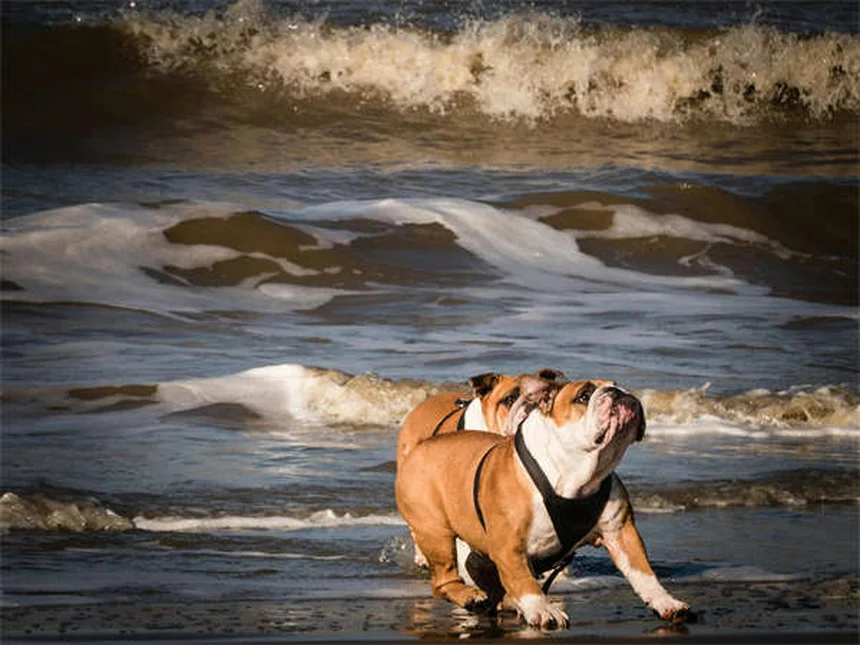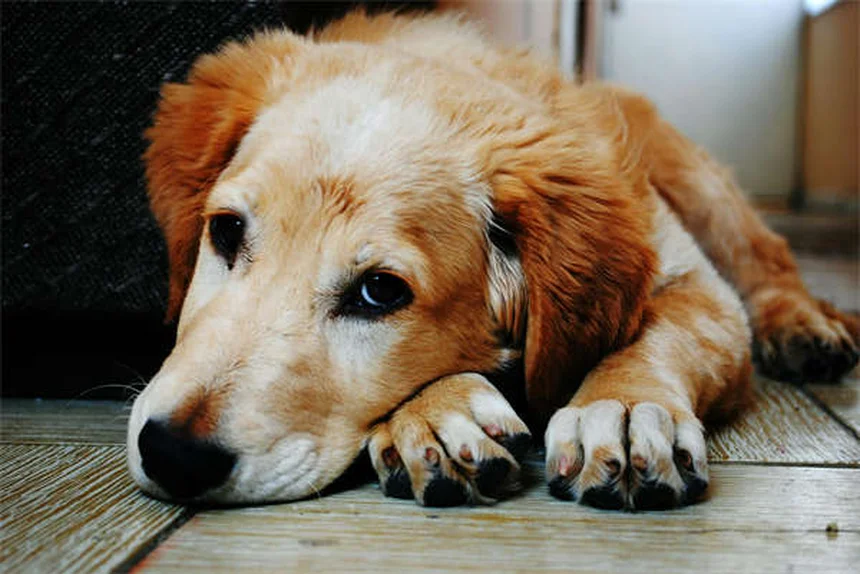Wondering why your ferret has diarrhea? Here's the straight answer: Ferret diarrhea can range from mild stomach upset to serious health emergencies, often caused by infections, poor diet, or underlying diseases. I've seen too many ferret owners panic when their fuzzy friend starts having loose stools - but understanding the causes can help you act fast.From my 10 years working with ferrets, I can tell you that watery stools combined with lethargy means it's vet time. The scary truth? Some types of diarrhea permanently damage your ferret's intestines if untreated. But don't worry - we'll walk through all the warning signs, treatment options, and prevention tips to keep your ferret healthy and happy.
E.g. :Fish Parasites: 5 Warning Signs Your Fish Has Lice or Leeches
- 1、Understanding Diarrhea in Ferrets
- 2、What's Causing Your Ferret's Diarrhea?
- 3、Getting to the Bottom of Ferret Diarrhea
- 4、Treatment Options for Diarrheic Ferrets
- 5、Helping Your Ferret Recover
- 6、Beyond the Basics: Digging Deeper into Ferret Digestive Health
- 7、Nutritional Factors You Might Be Missing
- 8、Environmental Triggers Worth Considering
- 9、Behavioral Clues You Shouldn't Ignore
- 10、When to Consider Specialized Care
- 11、FAQs
Understanding Diarrhea in Ferrets
What Exactly is Ferret Diarrhea?
Let me tell you, diarrhea in ferrets isn't just about messy cages - it's a real health concern. Ferrets can experience everything from mild stomach upset to severe, watery stools that leave them weak and dehydrated. The tricky part? Diarrhea often acts like a sneaky warning light, signaling something bigger might be wrong with your fuzzy friend.
Imagine your ferret's digestive system as a tiny, high-speed factory. When everything's working right, food moves through efficiently. But when diarrhea hits? That factory goes haywire! Watery or loose stools become the main symptom, often accompanied by a swollen belly and that heartbreaking lack of energy we ferret owners know too well. If this continues, your little buddy could face serious dehydration - and trust me, you don't want to see those cute eyes lose their sparkle.
When Diarrhea Gets Serious
Now here's where things get really concerning. Some types of diarrhea can actually change your ferret's intestinal lining permanently. We're talking about inflammatory and infectious diarrhea - the heavy hitters that can lead to malabsorption. What's that mean in plain English? Your ferret could eat all day but still starve because their body can't grab the nutrients!
What's Causing Your Ferret's Diarrhea?
 Photos provided by pixabay
Photos provided by pixabay
The Usual Suspects
Ever wonder why your ferret's digestive system suddenly rebels? Let's break it down. Sometimes it's simple - maybe that new treat didn't agree with them. Other times? We're looking at more complicated culprits:
| Cause Type | Examples | How Common? |
|---|---|---|
| Bacterial | Helicobacter, Campylobacter | Very common |
| Viral | Rotavirus | Moderately common |
| Parasitic | Giardia, Coccidia | Fairly common |
Did you know some of these pesky parasites can jump to humans? That's right - giardia doesn't care if you're a ferret or a person! This is why cleaning up properly becomes extra important when your fuzzy friend has diarrhea.
The Hidden Dangers
Here's something most ferret owners don't think about until it's too late: chronic diseases can cause diarrhea too. We're talking metabolic disorders that quietly mess with your pet's system over time. These aren't quick fixes - they're conditions that need ongoing management.
Getting to the Bottom of Ferret Diarrhea
What Your Vet Will Do
When you bring your sick ferret to the vet, expect them to play detective. They'll run tests, ask about symptoms, and probably collect some... well, samples. The duration of diarrhea matters - is this a sudden attack or an ongoing issue? Your vet will also check for clues like anemia or unusual protein levels that might point to bigger problems.
Here's a question you might not have considered: Why does the color and consistency of your ferret's stool matter so much? The answer lies in what it tells us about the digestive process. Greenish, mucus-covered diarrhea suggests different issues than bloody stools, for instance. Your vet uses these visual clues along with lab tests to pinpoint the problem.
 Photos provided by pixabay
Photos provided by pixabay
The Usual Suspects
Modern vet medicine is amazing! They might do fecal cultures to hunt for bacteria, fungi, or parasites hiding in your ferret's system. Think of it like sending out search parties into your pet's digestive tract. Sometimes they'll even check blood protein levels - abnormal results here can reveal hidden disorders you'd never spot at home.
Treatment Options for Diarrheic Ferrets
Simple Cases
For basic diarrhea from food issues? The treatment might be as straightforward as hydration therapy. Picture your ferret getting tiny IV fluids - it's both heartbreaking and adorable. Many mild cases resolve on their own with some TLC and proper hydration.
But here's where I need to be blunt: never try to treat serious diarrhea at home. That bacterial infection won't care how many YouTube videos you've watched about ferret care. Your vet might prescribe antibiotics, antifungals, or antiparasitics depending on what's causing the trouble.
When Hospitalization is Needed
In severe cases, your fuzzy friend might need to stay at the animal hospital. This isn't just about giving meds - it's about constant monitoring until they're stable. Dehydration can hit ferrets hard and fast, so sometimes overnight care makes all the difference between recovery and... well, let's not go there.
Helping Your Ferret Recover
 Photos provided by pixabay
Photos provided by pixabay
The Usual Suspects
Once home, your job begins! Rest is crucial - no crazy play sessions until your vet gives the all-clear. You'll likely need to provide electrolyte solutions (yes, there are special ones for ferrets) to help them recover properly. Keep their living area extra clean to prevent reinfection or spreading anything to other pets.
Here's another question ferret owners often overlook: How do you know when to rush back to the vet? If diarrhea persists more than a day or two, or if your ferret stops eating entirely, don't wait - make that call. Better safe than sorry with these delicate little creatures!
Preventing Future Episodes
Prevention beats cure every time! Stick to high-quality ferret foods, introduce new treats slowly, and keep their environment clean. Regular vet checkups can catch problems before diarrhea even starts. Remember - a healthy ferret is a happy ferret, and that means less mess for you to clean up!
Beyond the Basics: Digging Deeper into Ferret Digestive Health
The Gut Microbiome Connection
You know what's fascinating? Your ferret's gut is home to millions of tiny organisms that actually help with digestion! Probiotics aren't just a human health trend - they can work wonders for ferrets too. When diarrhea strikes, it often means this delicate balance of good bacteria gets thrown off.
Think of it like a microscopic city inside your ferret's belly. The good bacteria are like construction workers keeping everything running smoothly. But when bad bacteria take over? Total chaos! That's why some vets recommend probiotic supplements during recovery. I've seen ferrets bounce back faster when we support their gut health this way.
Stress - The Silent Digestive Disruptor
Here's something most owners don't consider: your ferret's emotions can cause diarrhea. Moving to a new home, introducing new pets, or even changes in your work schedule can stress them out. Their tiny bodies react physically to emotional upset - just like how some people get stomachaches when nervous!
Ever notice your ferret gets diarrhea after you've been away on vacation? That's not coincidence. These social creatures form strong bonds, and separation anxiety is real. Creating a stable routine with plenty of playtime can work wonders for their digestive health. Who knew cuddles could prevent diarrhea?
Nutritional Factors You Might Be Missing
The Protein Puzzle
Let's talk about what's in your ferret's bowl. These little carnivores need high-quality animal protein - we're talking 30-40% of their diet! But here's the kicker: not all proteins are created equal. Some cheaper foods use plant proteins that ferrets can't properly digest.
| Protein Source | Digestibility | Common in Which Foods? |
|---|---|---|
| Chicken meal | Excellent | Premium ferret foods |
| Soy protein | Poor | Budget kibbles |
| Fish meal | Good | Some specialty foods |
See that soy protein? That's like feeding your sports car cheap gas - it might run, but not well! Poor quality proteins can lead to chronic digestive issues over time. Investing in better food now might save you vet bills later.
The Fiber Factor
Now here's where things get interesting. While fiber helps human digestion, ferrets need very little - their short digestive tracts aren't built for it. Too much fiber can actually cause diarrhea by moving food through too quickly!
I once met a ferret owner who was adding pumpkin to their pet's diet because they read it helps with digestion. For dogs? Sure. For ferrets? Disaster! The poor thing had diarrhea for days. Remember: what works for other pets might harm your ferret.
Environmental Triggers Worth Considering
Toxic Household Hazards
You'd be shocked what common household items can upset your ferret's stomach. That houseplant you think looks nice? Could be poisonous. Those cleaning products you use? Might irritate their system if they walk through residue.
Here's a question that might surprise you: Could your ferret's bedding be causing digestive issues? Absolutely! Some wood shavings contain phenols that can irritate their respiratory and digestive systems when they groom themselves. Opt for paper-based or fabric bedding instead.
Temperature and Hydration
Ferrets are sensitive to heat - more than you might realize. When their environment gets too warm, they drink more water, which can lead to looser stools. But here's the twist: dehydration from not drinking enough can also cause digestive problems!
It's a delicate balance. I recommend keeping their room between 60-70°F and providing multiple water sources. Those cute little water bottles? They're great, but add a bowl too - some ferrets prefer drinking from bowls, and better hydration means healthier digestion.
Behavioral Clues You Shouldn't Ignore
The Poop Dance Tells All
Watch your ferret's bathroom habits closely. Normal ferrets do a little "poop dance" before going - it's hilarious to watch! But if they're straining or crying while trying to go? That's a red flag something's wrong.
Frequency matters too. Healthy ferrets poop every 3-4 hours. More often could mean diarrhea; less often might indicate constipation (which can sometimes precede diarrhea). Keep a mental note of their schedule - it's one of the best ways to catch problems early!
Food Guarding and Digestive Health
Here's a behavior-digestion connection most miss: food aggression can lead to digestive issues. Ferrets who gobble food too fast often develop stomach problems. If you have multiple ferrets, watch for bullying at meal times.
I solved one ferret's chronic diarrhea simply by feeding her separately from her cage mates. She was eating so fast to protect her food that she wasn't digesting properly. Sometimes the solution isn't medical - it's behavioral!
When to Consider Specialized Care
The Exotic Vet Advantage
Not all vets are created equal when it comes to ferrets. These little guys have unique needs that general practitioners might miss. An exotic pet specialist often spots digestive issues others overlook.
Think of it like this: you wouldn't take your Ferrari to a mechanic who mostly works on trucks, right? Ferrets are the sports cars of the pet world - they need specialists who understand their high-performance systems!
Advanced Diagnostic Options
For persistent diarrhea cases, your vet might suggest ultrasound or endoscopy. These sound scary, but they're painless procedures that let vets see inside your ferret's digestive tract. I've seen cases where these tests revealed issues bloodwork and stool samples missed entirely.
Here's another question worth asking: Could your ferret's diarrhea be related to dental problems? Surprisingly, yes! Dental disease can lead to poor chewing, which stresses the digestive system. Regular dental checkups might prevent digestive issues down the road.
E.g. :Diarrhea in Ferrets | PetMD
FAQs
Q: How can I tell if my ferret's diarrhea is serious?
A: Watch for these red flags: diarrhea lasting more than 24 hours, blood in stool, or your ferret acting lethargic. As a ferret owner myself, I know it's tempting to wait it out, but these small animals dehydrate fast. If your ferret's belly looks swollen or they're not their usual playful self, that's your cue to call the vet. Remember - better safe than sorry when it comes to ferret health!
Q: What home remedies can I try for mild ferret diarrhea?
A: For mild cases, try these vet-approved steps: 1) Switch to bland chicken baby food for 12-24 hours, 2) Offer electrolyte solutions made specifically for ferrets, and 3) Keep them warm and rested. But here's the catch - if symptoms don't improve within 12 hours, or if your ferret stops eating, skip the home treatment and get professional help. I've seen too many "wait-and-see" approaches go wrong with these delicate pets.
Q: Can ferret diarrhea be contagious to humans?
A: Yes, some causes like giardia and cryptosporidium can jump to humans! That's why I always wear gloves when cleaning up after a sick ferret. Wash your hands thoroughly after handling them or their litter box. If anyone in your household gets diarrhea after your ferret does, tell your doctor about the possible connection. This cross-species risk is why proper hygiene is non-negotiable with sick ferrets.
Q: How long does ferret diarrhea typically last?
A: Here's the deal - normal upset stomachs might clear in 12-24 hours with proper care, but infection-related diarrhea can last days without treatment. In my experience, if your ferret's diarrhea persists beyond one full day, it's time for veterinary intervention. Chronic conditions like inflammatory bowel disease may cause ongoing issues requiring long-term management. The duration often clues us in to how serious the underlying cause is.
Q: What's the best diet for a ferret recovering from diarrhea?
A: After diarrhea, I recommend this three-step recovery diet: 1) Start with chicken baby food (no onions/garlic!) for the first 12 hours, 2) Gradually mix in their regular high-protein kibble, and 3) Add probiotics specifically formulated for ferrets. Avoid dairy products - despite what you might hear, most ferrets can't digest them well. The key is going slow; their delicate digestive systems need time to fully recover.

